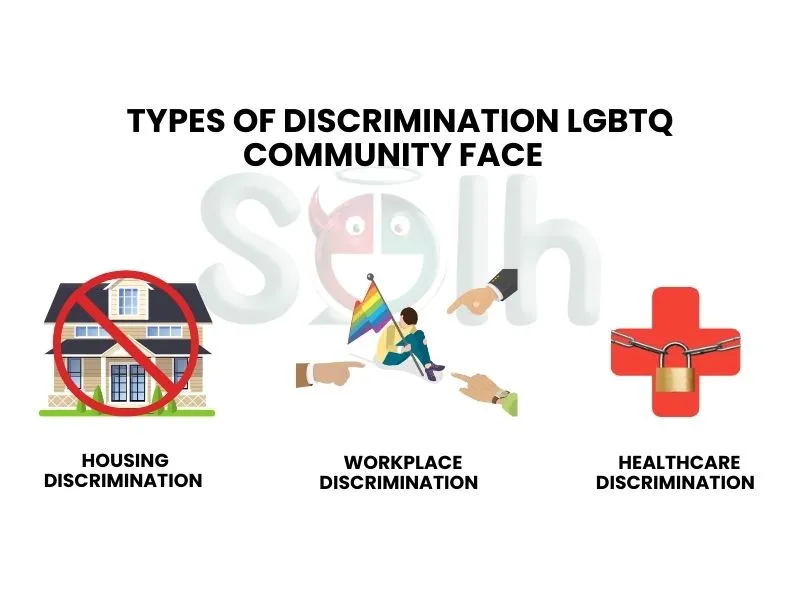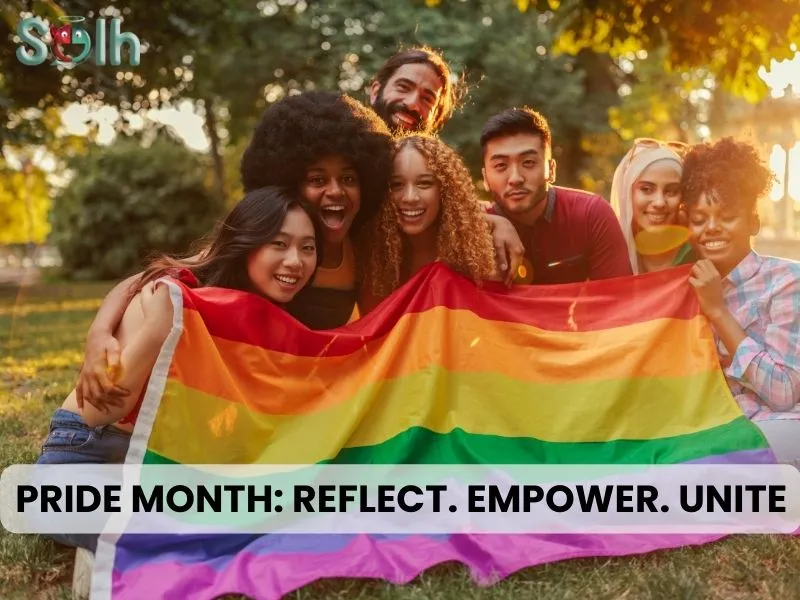Prior to June 1969, the LGBTQIA+ community faced rampant discrimination and persecution. Laws criminalized same-sex relationships, and LGBTQIA+ individuals were ostracized and excluded from mainstream society. The Stonewall Inn, a gay bar in New York City, became a refuge for many, offering a safe space for self-expression and community. However, on June 28th, 1969, a routine police raid on Stonewall sparked a rebellion. Fed up with years of harassment and injustice, patrons and bystanders fought back, igniting a six-day uprising that became a turning point in LGBTQIA+ history. The Stonewall Riots were a catalyst for change.
They galvanized the LGBTQIA+ community and brought national attention to the struggle for equal rights. LGBTQIA+ activist groups emerged, demanding an end to discrimination and legal recognition. The first Pride march held a year later on the anniversary of the Stonewall Riots, marked a new era of activism and visibility. Participants marched proudly down Christopher Street in New York City, demanding their voices be heard.
Over the years, Pride celebrations have evolved from marches to vibrant festivals, parades, and educational events. Pride Month has become a global phenomenon, with celebrations happening in cities around the world. These events are a time for the LGBTQIA+ community to come together, celebrate their identities, and express their pride. They are also a platform to raise awareness of the ongoing fight for equality.
Despite the progress made, LGBTQIA+ individuals still face significant challenges. Discrimination persists in crucial areas like housing, employment, and healthcare.
Housing Discrimination
A study by the Williams Institute at UCLA (2020) found that 19% of transgender individuals reported being refused a home or apartment, and 11% had been evicted because of their gender identity.
- Finding a place: LGBTQIA+ renters may face outright rejection from landlords or property managers who are unwilling to rent to them because of their sexual orientation or gender identity.
- Unequal treatment: Even if they do find a rental opportunity, they might be quoted higher rent than a heterosexual couple for the same unit.
- Fear of eviction: LGBTQIA+ tenants may feel less secure in their housing, worried about potential discrimination or harassment from landlords that could lead to eviction.
Workplace Discrimination
A 2020 report by the American Psychological Association found that LGBTQIA+ employees are more likely to experience workplace discrimination, including microaggressions and unfair treatment. This can create barriers to advancement.
- Hostile environment: Microaggressions, which are subtle but constant forms of discrimination, can create a hostile work environment for LGBTQIA+ employees. These microaggressions can be verbal or nonverbal, but they communicate that their identity is not valued or respected.
- Limited opportunities: LGBTQIA+ employees may be passed over for promotions or given fewer opportunities for advancement due to their sexual orientation or gender identity.
- Mental health impact: Workplace discrimination can lead to stress, anxiety, and depression for LGBTQIA+ employees. It can also contribute to job dissatisfaction and a desire to leave their current position.
Healthcare Discrimination
A study published in the Journal of the Society for Social Work and Research by Jerzyk et al. (2018) found that transgender and gender non-conforming individuals experience higher rates of discrimination in healthcare settings. This can lead to them delaying seeking preventive screenings or medical care altogether.
- Dismissive attitudes: Transgender and gender non-conforming individuals may encounter healthcare providers who are dismissive of their concerns or lack understanding of their specific health needs.
- Delayed care: Fear of discrimination may lead LGBTQIA+ individuals to delay seeking preventive screenings or medical care altogether, potentially leading to worse health outcomes.
- Lack of competency: Some healthcare providers may not be up-to-date on the specific healthcare needs of LGBTQIA+ individuals, hindering their ability to deliver competent care.

India's progress on LGBTQIA+ rights presents a fascinating paradox. On the one hand, the decriminalization of same-sex relationships in 2018 was a landmark victory. Yet, significant hurdles remain on the path to true equality. The legal landscape currently lacks comprehensive anti-discrimination laws. Imagine the daily struggles faced by LGBTQIA+ individuals who might be denied housing due to their sexual orientation, encounter bias in the workplace, or struggle to find healthcare providers who understand their specific needs. Legislative changes are essential. Enacting an anti-discrimination law similar to those in other developed nations would provide crucial legal protection in areas like housing, employment, and healthcare. Furthermore, legal recognition of same-sex marriage or civil unions would not only grant LGBTQIA+ couples the same rights and benefits as heterosexual couples but also send a powerful message of inclusion and acceptance. Beyond legal reforms, addressing social stigma is equally important.
Educational campaigns that foster understanding and empathy towards the LGBTQIA+ community are critical in dismantling prejudices. Additionally, healthcare systems need to be equipped to cater to the specific needs of LGBTQIA+ individuals. Investing in sensitivity training for medical professionals and ensuring access to gender-affirming healthcare would be a significant step forward.
Pride Month in India, therefore, becomes a potent symbol of both celebration and a call for action. It's a time to acknowledge the hard-won progress but also to recognize the work that remains. By advocating for legislative changes, promoting social acceptance, and ensuring access to inclusive healthcare, India can create a future where the LGBTQIA+ community can flourish without fear or discrimination.
The vibrant LGBTQIA+ community faces a significant hurdle when it comes to mental health. Factors like societal discrimination, the stress of coming out, and a lack of acceptance from various sources can create a challenging environment. This "minority stress" can lead to a higher prevalence of conditions like depression, anxiety, and even PTSD. Imagine the constant pressure of navigating a world that may not fully understand or embrace your identity. The coming-out process itself can be fraught with uncertainty and isolation, further impacting mental well-being.
Additionally, a lack of access to affirming healthcare providers who understand the unique struggles of LGBTQIA+ individuals can make seeking help even harder. However, it's crucial to remember that being LGBTQIA+ is not a mental illness. There's immense strength and resilience within this community. Fortunately, there are resources available to help navigate these challenges. Organizations like The Trevor Project offer lifelines to LGBTQIA+ youth through phone, text, and online chat. The National Alliance on Mental Illness (NAMI) provides support groups specifically tailored to LGBTQIA+ experiences. The Jed Foundation and Human Rights Campaign (HRC) also offers valuable mental health resources for LGBTQIA+ individuals of all ages. If you identify as LGBTQIA+ and are struggling with your mental health, know this: you are not alone. Don't hesitate to reach out for help. By utilizing these resources and building a supportive network, you can navigate these challenges and thrive. Remember, your identity is a source of strength, and there's a whole community out there cheering you on.
Pride Month isn't just about rainbows and glitter, although those things are definitely welcome! Woven from resilience, self-discovery, and the dazzling colors of a community refusing to be silenced. It's a chance to celebrate the incredible journey of the LGBTQIA+ community, from the brave souls who stood up at Stonewall to the activists fighting for equality today. Think of Pride Month as a giant, joyful block party for everyone who wants to join in. It's a chance to dance down the street with your chosen family, sing your heart out, and wear your most fabulous outfit (think sequins, feathers – the whole flamboyant shebang!). But amidst the confetti and laughter, Pride Month also carries a powerful message. While strides have been made, the fight for true equality isn't over. Imagine finding a home that welcomes you, a workplace that celebrates your unique talents, or a doctor who understands your specific healthcare needs – these are the things Pride Month reminds us to keep fighting for. So, how can you be a part of this vibrant movement? It's easier than you think! Stand up for your LGBTQIA+ friends and family. Celebrate their individuality. Maybe even attend a Pride event; you'll be amazed by the energy, the creativity, and the sheer joy of it all. Remember, Pride Month is a reminder that love is love, and everyone deserves to live authentically and chase their dreams. Let's keep the colors flying, the music pumping and the fight for equality going strong, one glitter-dusted step at a time!
Supporting someone you love who identifies as LGBTQIA+ can feel like uncharted territory.
There will be victories to celebrate, big and small, and challenges to navigate together. Solh can be your partner on this journey. We understand the unique joys and concerns that come with supporting a loved one in the LGBTQIA+ community. Solh offers a safe space for you and your loved one to explore resources and find comfort. Here, you'll find information about LGBTQIA+ identities, coming-out stories, and tips for being a supportive ally. Explore journaling prompts for self-reflection, or connect with a counselor instantly through our "Talk Now" feature. You're not alone. Share your experiences and find comfort in our anonymous support groups, specifically designed for LGBTQIA+ allies and loved ones. Solh Buddy, your virtual companion, offers personalized encouragement along the way. Take charge of your own understanding and support system so you can better stand by your loved one. Explore Solh and find the spark that will help you guide each other through this journey together.



